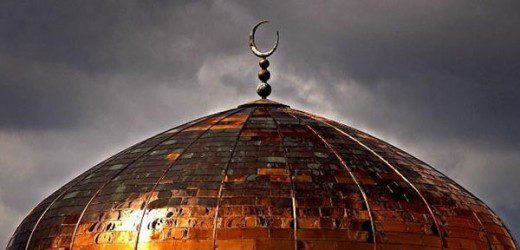 We welcome Inas Younis – Altmuslim’s new columnist. Her column, “The Muslim Monad: Explorations in Identity, Philosophy and the Islamic “State” will appear in the first week of each month.
We welcome Inas Younis – Altmuslim’s new columnist. Her column, “The Muslim Monad: Explorations in Identity, Philosophy and the Islamic “State” will appear in the first week of each month.
By Inas Younis
No political philosophy ever existed without a theory of human nature. It took countless bloody historical convulsions before we settled on a set of ideals that were consistent with our nature.
It took centuries worth of cumulative human knowledge for us to realize that mankind cannot by design work against his own self interest, and not because he is selfish but because he is, by nature, rational.
We are not a suicidal species and must therefore construct a society where our spiritual progress and material concerns are not inversely related, but work in unison.
When the long-held theory of human nature as inherently evil finally yielded to the notion that man is innately moral and good, the world was forever transformed. It was this historical shift in our understanding of human nature that became the impetus for the actualization of the enlightenment ideals of secularism, liberalism, capitalism, democracy, nationalism and faith in science.
And, along with these implementations came unprecedented growth and progress.
Sadly, the aspirations of the enlightenment principles are now rapidly disintegrating. It’s not just because of the current administration’s disregard for the integrity of our constitutional republic.
Our political climate is just one of the many unfortunate responses we have had to a century that has witnessed evils so mortifying that we can’t help but feel ideologically insecure And in that insecure space, a man of questionable character and virtually no qualifications was able to confiscate the highest office in the land.
Hitler’s concentration camps, Stalin’s labor units, ISIS, the Syrian crisis and the genocide in Myanmar have not only tested our principles but re-introduced the possibility that man may in fact be inherently evil – man may need the restraint of deprivation and state-enforced discipline to preserve his morality.
The horrors of our most recent history has contaminated our libertarian ideals and put into question whether man can be trusted as an individual or whether he is better enslaved by the communal interest of the social organism we call society.
Does he require independence or tighter controls and social engineering?
The war of ideas that so many politicians opportunistically continue to reference is really a war between these two competing notions of man’s place on earth: Is he an individual whose rights deserve state protection or part of a social organism in need of an authoritarian state apparatus?
The growing sentiment towards the latter prescription has been energizing populists, demagogues and their intellectual counterparts all over the world.
An Islamic Perspective
When Thomas Jefferson said, “Nothing is unchanging but the inherent and inalienable rights of man,” he was drawing on natural law as the source of man’s rights.
As a Muslim I, believe that natural law is divine law. Islam describes nature as a sign, and so I subscribe to Francis Bacon’s observations that “nature to be commanded must be obeyed.”
The pronouncement that “we hold certain truths to be self-evident” is an admission that whatever we hold to be self-evident is — also by chain reaction — sacred. It is an admission that we believe in an objective reality from which self-evident truths can be derived.
It’s an affirmation that truth stands independently of human perception and is not subject to public opinion. No one, nothing, not even an impending apocalypse, can morally justify the violation of a sacred right granted by the immutable and non-negotiable laws of nature.
Of course, this belief in the innate goodness of man as a fact of nature is not a new concept. Islamic theology has always renounced the notion of original sin and advanced the concept of fitrah, loosely translated as a moral intuition towards tawheed, or unification, of the sacred and secular.
It’s not that Islam does not recognize our nature as being capable of grave evils, it just sees it as a capacity and not an inclination or proclivity. Our proclivity, we are told is towards good. And, the conditions necessary for its manifestation is freedom.
When American Muslims say that America is the closest nation to reconcile itself to Islamic ideals anywhere in the world, they are not speaking of shariah law, they are simply reinforcing their renunciation of the dualistic view of existence.
The sacred and secular are one.

When we defend our secular ideals, we can afford to do so with the religious zeal that only sacred principles could inspire. Dualism is a function of a theology that sees man and nature as inherently evil and at odds with the superior spiritual and sacred dimension.
Islam does not recognize this dichotomy. For many Muslims, the political philosophy that set the trajectory towards the creation of the United States is the greatest reconciliation of man’s nature and God’s will. And, God bless America.
Inas Younis is a Kansas City-based freelance writer and commentator. Her opinion pieces and personal essays have been published in various websites and magazines. Inas is an active volunteer in several interfaith initiatives and serves on the board of the Sisterhood of Salaam Shalom. She is also a contributor to a forthcoming 400-page community-led guide, aimed at mobilizing Muslims to take a stand against violent extremism and develop narratives of peace.Her work was featured in an anthology titled “Living Islam Out Loud.” Follow her on Twitter and on Facebook.















